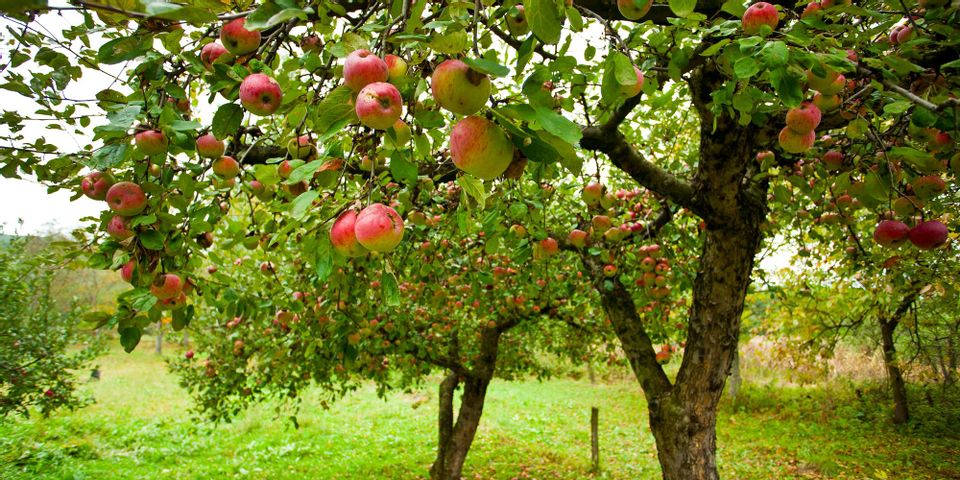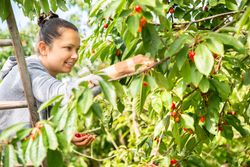
Located in the heartland of the United States, Indiana's shorter growing season and unpredictable spring frost pose a list of challenges for many local gardeners. While growing fruit trees in Indiana can be tricky, proper tree care and choosing the right cultivar can make all the difference. Use the guide below for a list of frequently asked questions on growing fruit in Indiana.
Common Questions About Growing Fruit Trees in Indiana
What is Indiana's cold hardiness zone?
A cold hardiness zone determines the state's lowest average temperatures. While Northern Indiana resides in Zone 5b, meaning the lows average -10 to -15 degrees, Southern and Central Indiana remain in Zone 6b, which averages zero to -five degrees during the winter.
What fruit trees grow best in Indiana?
 Many deciduous fruit trees require "chill hours," or a set number of hours where the temperatures remain lower than 45 degrees, to set fruit, making hardiness Zones 5a to 6b ideal for certain cultivars. Common varieties that thrive in Zone 5 include pears, peaches, plums, persimmons, cherries, pawpaws, apricots, and apples, which have been a popular choice among Indiana fruit growers since the days of Johnny Appleseed.
Many deciduous fruit trees require "chill hours," or a set number of hours where the temperatures remain lower than 45 degrees, to set fruit, making hardiness Zones 5a to 6b ideal for certain cultivars. Common varieties that thrive in Zone 5 include pears, peaches, plums, persimmons, cherries, pawpaws, apricots, and apples, which have been a popular choice among Indiana fruit growers since the days of Johnny Appleseed.
When should I prune my fruit trees?
The right time to prune your fruit trees depends on your goals. Overly large and vigorous trees can be pruned in the early spring to discourage foliage overgrowth that can stunt fruit production. Pruning young trees in the late winter can help spur vigorous growth come summer. For routine seasonal tree care, prune in the late fall or early winter when the tree is dormant, as this provides clearer visibility of growing points and promotes growth in the spring.
When should I fertilize my fruit trees?
Fruit trees are heavy feeders that remove large amounts of minerals and nutrients from the soil. To keep your fruit trees vigorous and healthy, replenish depleted nutrients through routine fertilization. New and established fruit trees should be fertilized in the spring just after their buds begin to form. This ensures adequate nutrients come summer when the trees need it most. Established fruit trees don't require as much fertilization to survive, and biennial fruit trees, such as plums, only require fertilization in their fruit-bearing years.
For fruit tree care including pruning, mulching, trimming, and more contact Russell's Tree Care Services in Demotte, IN. With over 35 years of experience, this family-owned team of ISA-certified arborists provides knowledge and expertise in growing and maintaining healthy and productive fruit trees for both commercial and residential customers. Contact them today at (219) 987-4378 to schedule service, or visit them online to learn more about their tree care services.
About the Business
Have a question? Ask the experts!
Send your question

